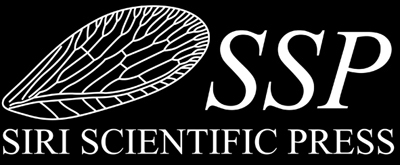News
Conservation in Botswana
Posted by David Penney on
Botswana, located in southern Africa, is a landlocked country known for its incredible wildlife and diverse natural landscapes. From the Okavango Delta to the Chobe National Park, Botswana boasts some of the most iconic conservation areas in Africa. However, conservation in Botswana is not without its challenges, and ongoing efforts are necessary to ensure that its natural heritage is protected for future generations. One of the most pressing conservation challenges in Botswana is the issue of wildlife poaching. Illegal hunting of elephants, rhinoceroses, and other animals for their tusks and horns has been a problem in many parts of Africa...
Tortoises of the West Indian Ocean Islands
Posted by David Penney on
The West Indian Ocean Islands are home to some of the most remarkable and endangered tortoises in the world. These islands, which include Madagascar, the Seychelles, and the Comoros, are home to a diverse range of tortoise species, many of which are threatened by habitat loss, poaching, and invasive species. One of the most well-known species of tortoise in the region is the giant Aldabra tortoise, which is found on the Aldabra Atoll in the Seychelles. These tortoises are one of the largest in the world, with some individuals weighing over 500 pounds. They are also one of the longest-lived...
Fossil Collecting on the Dorset Coast
Posted by David Penney on
The Dorset coast, located in the southwest of England, is well known for its geological diversity and the wealth of fossils that can be found there. From ammonites and belemnites to dinosaur footprints, the area has a rich history that spans over millions of years. Fossil collecting on the Dorset coast is a popular activity for people of all ages, and it is a great way to learn about the geological history of the area. Here are some tips and tricks to help you make the most out of your fossil hunting experience. Choose the right location The Dorset coast...
Book Review: Trilobites of the British Isles
Posted by David Penney on
We are pleased to announce a new review of our title Trilobites of the British Isles by Robert Kennedy and Sinclair Stammers, just published online by the Palaeontological Society, USA. Click the cover to see more info and reviews of this title or to order your copy Paleontological Soc USA (2023, snippets) "The specimens contained in this volume represent the vast and important collections Kennedy has amassed throughout his lifetime, combined with historically important specimens (chiefly type specimens) located in museum collections. Many of the included specimens represent the most-complete specimens yet discovered, and many type specimens are also photographed...
- 0 comment
- Tags: Book review, News
Happy bicentenary Alfred Russel Wallace!
Posted by David Penney on
Today marks the bicentennary of Alfred Russel Wallace (8 January 1823–7 November 1913). He was a British naturalist, explorer, geographer, anthropologist, biologist and illustrator and is best known for independently conceiving the theory of evolution through natural selection. His 1858 paper on the subject was published that year alongside extracts from Charles Darwin's earlier writings on the topic. He was considered a leading expert on the geographical distribution of animal species, and is often called the "father of biogeography" (or more specifically of zoogeography). Aside from his scientific work, he was a social activist, critical of what he considered to...
